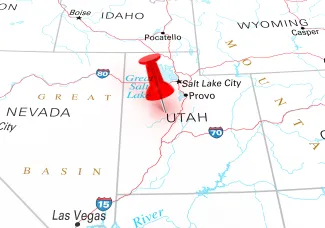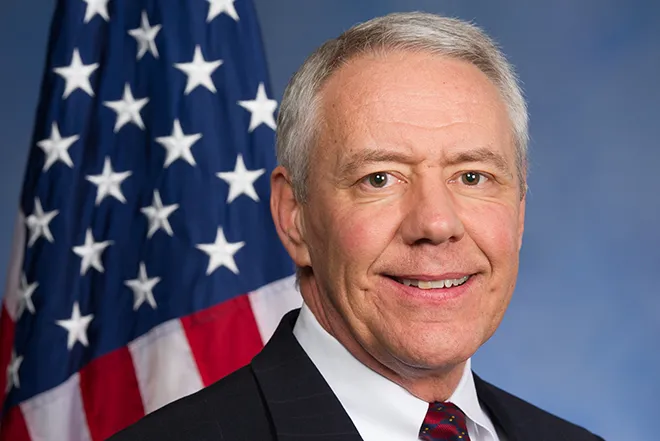
Utah lawmakers advance bill to withhold funds from SLC if its police don’t partner with state
In December, Utah leaders gave Salt Lake City Mayor Erin Mendenhall a choice — develop a plan to curb crime, restore public confidence and increase safety, or the Legislature will step in.
Mendenhall and city leaders complied, releasing a detailed 50-page public safety plan in January. But the Legislature is still moving forward with plans to withhold funding for the city’s roads if Salt Lake leaders don’t strike a formal agreement to collaborate with the state.
That’s the gist of a bill sponsored by House Majority Assistant Whip Casey Snider, R-Paradise, that advanced Friday after getting approval from GOP lawmakers at a House Law Enforcement and Criminal Justice Committee meeting in a 7-1 vote. Salt Lake City Democrat Representative Sandra Hollins was the lone “no” vote.
Snider called the bill collaborative — Mendenhall called it coercive.

“Let me be clear — legislation that requires cities to enter into this partnership and penalizes us if we do not, is not real collaboration. It is coercive and it is unnecessary, and damaging to the trust that should be built between our levels of government, if we are truly going to work together to solve big problems,” the mayor said on Friday, speaking to the committee.
HB465 would require cities of the first class that also receive homeless mitigation funds from the state to enter into an agreement with the Utah Department of Public Safety, or DPS. That agreement would be “narrowly tailored” toward crime and safety issues in that city, said Snider.
First class cities are defined as a municipality that has more than 100,000 residents — currently, that’s Salt Lake City, West Valley City, West Jordan, Provo, Sandy and St. George.
But, as Snider acknowledged on Friday, “Salt Lake City has been the focus of this.”
If the city’s law enforcement agency doesn’t enter into an agreement with DPS by July of this year, the state will reduce the funds it can get from the state’s Homeless Shelter Cities Mitigation Account, which has been in place since 2018 and draws from revenue generated by sales tax.
And if the city still hasn’t entered into an agreement by October 2025, the bill directs the Utah Department of Transportation to “have the city’s road funds withheld.”
The bill would also create a public safety rapid response team within DPS to respond to certain high crime areas in the city. Snider said the team would target “rare instances where open-air drug markets or consistent camping is not being addressed.”
“I believe it is meant to be very much a handout in terms of working together. It’s meant to be very much collaborative. But it also has significant accountability provisions,” Snider said on Friday.
But that’s not how Mendenhall sees it. She told reporters on Friday that her team proposed amendments to HB465, but Snider wasn’t receptive. The city plans to work with DPS, regardless of whether the bill passes.

“We do not need a legislative mandate that threatens to take our road funds in order to do that partnership,” she said.
According to Mendenhall, the city is making progress. Since the plan went into effect, Salt Lake City police have made more than 500 arrests, issued 118 camping citations and boasted a number of drug, gun and money seizures.
Opponents to the bill, including Mendenhall, said the Legislature needs to give the city time to see how the plan released in January plays out. That was the sentiment from Hollins, who explained her opposition to HB465 during the meeting.
“There has not been time to see if there will be a difference with the plan they created. Do I think we have issues? Absolutely we have issues. But part of my concern is this precedent that’s being set,” Hollins said, describing the bill as a message to “comply, or we’re going to take over.”
But Republicans, at least on the House committee Friday, were unwavering. Crime in Salt Lake City has been spiralling for too long, they said, and it’s time for the Legislature to step in.
“While I appreciate the mayor being here today, and the information that she’s provided us, I think it’s somewhat contradictory to what the employees are seeing or feeling,” said Representative Matthew Gwynn, R-Farr West.
Gwynn, who currently serves as the Roy City police chief, said he’s spoken with Salt Lake City police officers and described them as being “hamstrung” and frustrated with city leadership. He had strong words for Salt Lake City officials, who he said take an adversarial stance toward lawmakers.
“Time and time again they’ve illustrated fighting against legislative intent. We should absolutely be in a position to manage the money that we’re giving them, and if it’s being used inappropriately, we’re going to fix the issue,” he said. “The time for all this negotiation, waiting, hoping, is over. The message is abundantly clear: things have to change.”
The bill, having passed the House committee, will now move forward to the entire Utah House for consideration before potentially heading to the Senate, where there appears to be early support for it.
When asked about Snider’s bill on Friday, Senate President Stuart Adams, R-Layton, told reporters “there is a sentiment that things aren’t going well in the capital city, and we’re concerned about it.”
Utah News Dispatch is part of States Newsroom, a nonprofit news network supported by grants and a coalition of donors as a 501c(3) public charity. Utah News Dispatch maintains editorial independence. Contact Editor McKenzie Romero for questions: info@utahnewsdispatch.com.

















